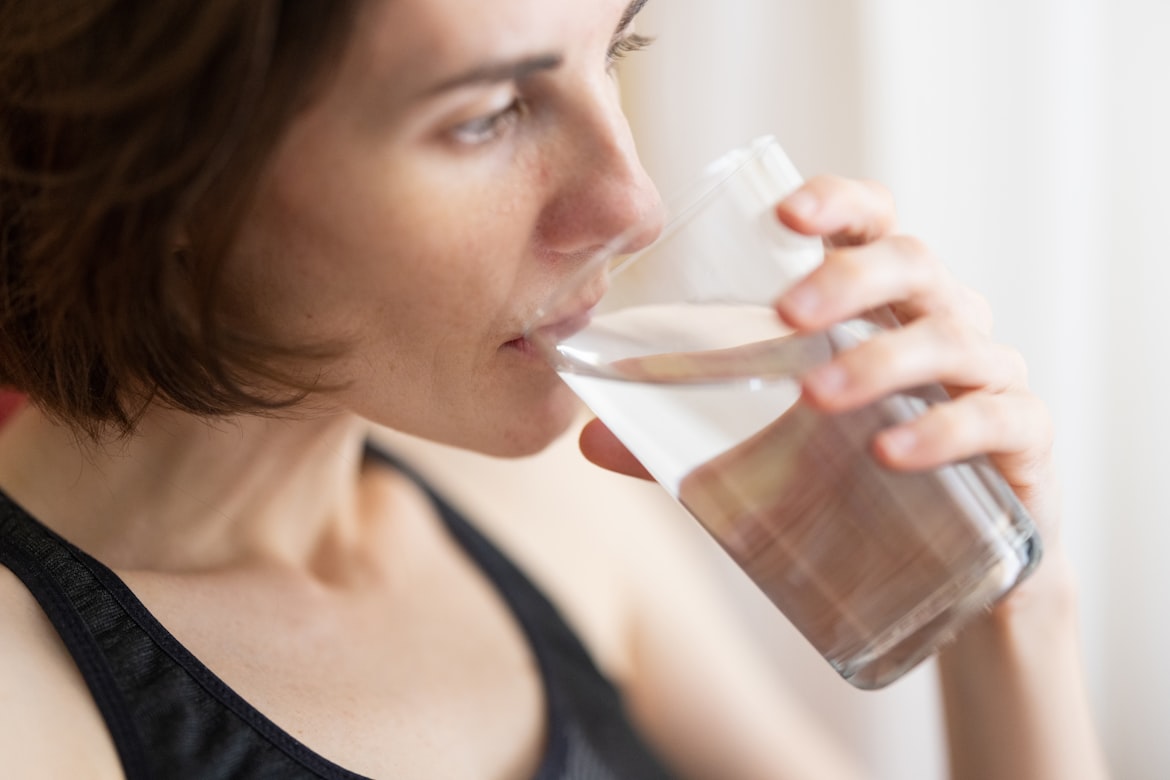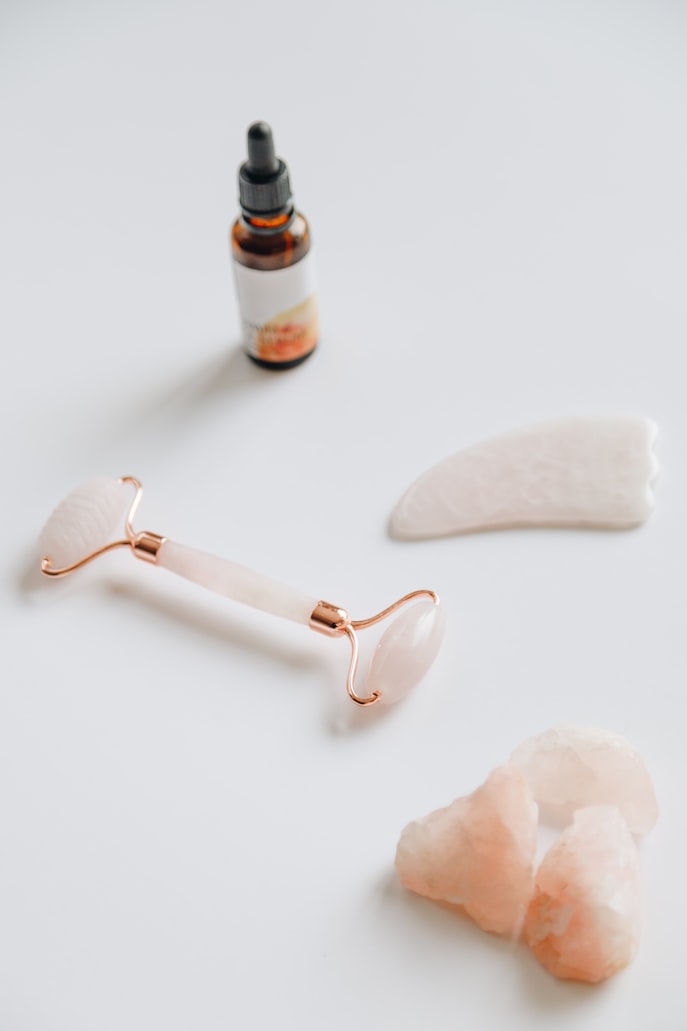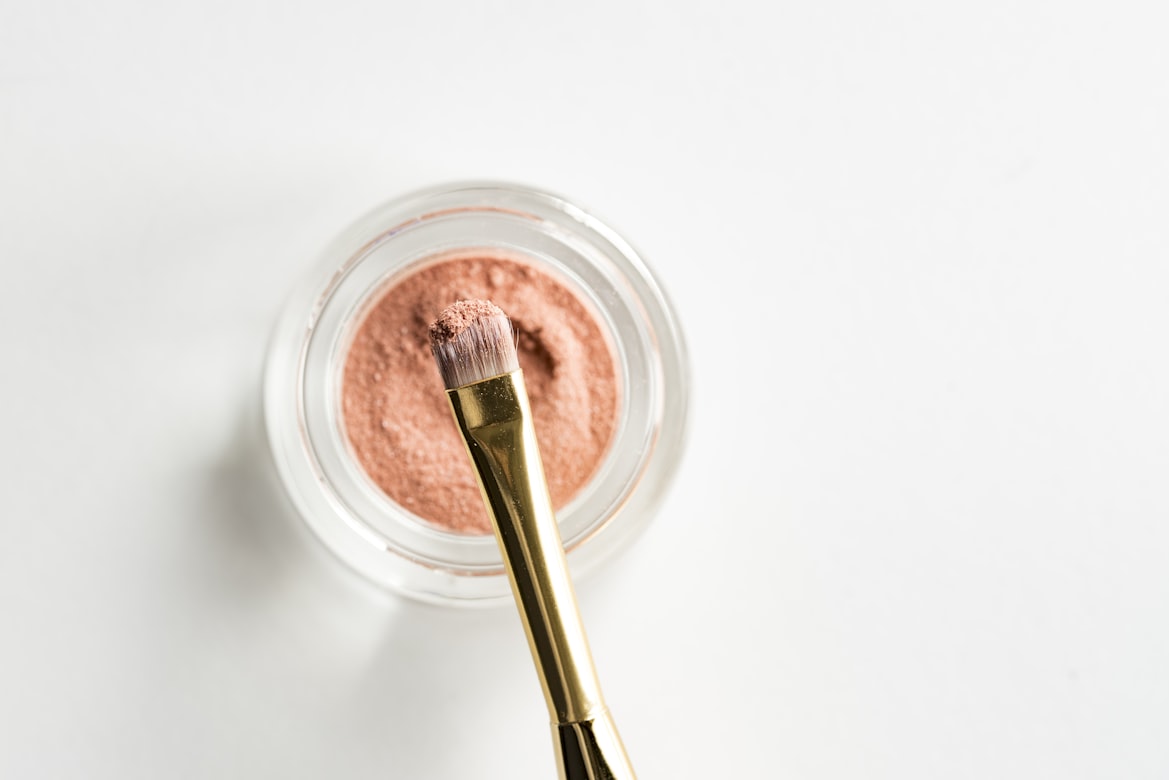Everyone wants glowing skin. Glowing skin makes us feel good and look good, brightening up our entire face and making us look fresh and healthy.
We’ve gathered up some of the very best tips for glowing skin around. Some are simple and straightforward, others are a little more complex.
Without further ado, let’s take a look at some of the best tips for glowing skin!
1: Drink Water
Everyone should drink at least 2 litres of water a day, but the truth is that many people don’t. Even mild dehydration can cause various issues and takes its toll on our skin, even if it’s not immediately apparent. Hydration is directly linked to skin health and skin cell regeneration, and drinking water obviously has many other benefits too.

- 2 litres is the minimum for most people. However, many need more, especially in summer.
- If possible, avoid mixing water with anything else, especially not sugary syrups and squashes.
- Standard tap water or mineral water is often better for us than filtered water.
2: Exfoliate
Exfoliating is incredibly important for healthy skin. The concept is pretty simple; exfoliation removes dead skin and other build-ups, enabling skin cells to replace and regenerate themselves.
There are two main types of exfoliation:
- Chemical exfoliants work by dissolving dirt, oil, and dead skin cells. Though you can find plenty of chemical exfoliators made specifically for sensitive skin, these can be quite powerful and aren’t suitable for everyone’s skin.
- Physical exfoliators, like pumice stones. These literally rub layers of skin and other dirt away, enabling new skin to grow.
3: Cleanse And Moisturise
You should clean your skin regularly without over-cleaning. Scrubbing your face raw, exfoliating aggressively and plastering on products will likely worsen your skin’s condition over time. Instead, it’s necessary to balance cleaning your skin properly and not pushing things so far that your skin becomes irritated, red and raw. This will only increase the build-up of scar tissues.
Cleanse skin daily, but be sure to find a cleaning product that suits your skin. For example, many people could benefit from a milder cleanser than they typically use. Neutrogena’s Water Boost range is great for cleansing skin without drying it out badly.
- Experiment with milder cleansers.
- It’s usually best to wash in the morning and night at least.
- Have an excellent facial clean after exercise or sweaty activity!
4: Get Some Sun...But Not Too Much
Our skin has a love:hate relationship with the sun. On the one hand, the sun is vital for producing vitamin D, which plays a crucial role in skin health and regeneration. But, on the other hand, damage and sunburn via UV can cause serious skin issues if you don’t protect your skin with sun cream.

Some 80,000 people in the US die from skin cancer (melanoma) each year, and many people fail to take the risk seriously. No one is suggesting you abandon sunscreen - on the contrary. But, if you frequently work inside or otherwise don’t get much sunlight, make sure you give your skin a dose of natural vitamin D whenever possible.
- Getting 10 to 30 minutes of proper natural daylight several times a week is essential for vitamin D.
- Open windows and fill your home with natural light.
- Never neglect sunscreen, even in the colder months.
5: Use Sunscreen Regularly
As mentioned, the sun has a strange interaction with our skin. However, just because the sun makes your skin look good in the short term doesn’t mean that will last. If you spend ages in the sun pursuing a natural bronze tan but avoid using sunscreen, your skin will eventually degrade. Maybe not now, and maybe in not a year or two, but eventually, your skin will show signs of sun damage.
Use sunscreen liberally throughout the year. This is one of the best ways to keep skin tight and taught, avoiding sun damage. Depending on your skin tone, you don’t always need to use high SPFs unless it’s very sunny. Make sure you do plenty of research into what sunscreen will suit your skin, and don’t skimp out on the quality if you can help it.
The Independent has an excellent list of sunscreens here, many of which are non-greasy and suitable for regular use.
- Never leave home without sunscreen in the summer.
- Consider using sunscreen all throughout the year.
- Spend some time finding a sunscreen that works for you. Consult a dermatologist if you’re unsure.
6: Sleep Is For The Strong!
Sleep is extremely important for the health of both body and mind, and that includes your skin. Numerous studies have shown that sleeping well improves skin health, helping your skin look younger and healthier.
Sleep promotes the regeneration of all cells, not just skin cells. When we sleep, our body goes about replenishing the skin, and our skin also re-tightens, reducing sagging eyes. Consider using a night mask or overnight produce to enhance skin health through the night.
Just one bad night's sleep can cause:
- Hanging or drooping eyelids
- Swollen eyes
- Undereye circles
- Paler skin
- Wrinkles and fine lines
- Drooping in the corners of the mouth
Practice good sleep hygiene, such as the 3, 2, 1 rule, which says:
- Don’t eat within 3 hours of going to sleep
- Don’t work within 2 hours of going to sleep
- Don’t use phones or screens within 1 hour of going to sleep
7: Massage Your Face
Facial massages are becoming more popular in recent times. Massages, in general, are excellent for relieving muscle tension and promoting blood flow to the skin, encouraging regeneration.
You can easily apply a facial massage to yourself using your fingers, and you can find many different facial massage devices online now. Massaging your face will also relieve tension headaches, sinus irritation and other facial aches and pains. In addition, de-stressing your face will heavily reduce the risk of wrinkles and other stress damage. Also, keeping your facial muscles toned will keep your smile strong and bright and prevent drooping.

Massage your face to alleviate strains.
Experiment with facial massage devices, such as rollers (like the one above) and electronic massage devices.
Build massages into a plan for de-stressing at the end of hard days.
8: Diet and Exercise
Ah, those two words which many of us dread! There’s really no way of escaping the fact that diet and exercise affect skin health. Exercise promotes the regeneration of cells, and sweating profusely can sometimes boost skin health in itself, as it ejects old particles from the pores (though cleaning the face properly after exercise is vital).
The big one here is diet, though. You are what you eat, and your skin strongly reflects your diet. There is absolutely no doubt that a strong, healthy and balanced diet that consists of numerous vitamins and minerals, as well as antioxidant compounds, adaptogens and other plant phenols, will improve skin health.
Try the following foods:
- Avocado
- Grapes and berries
- Pomegranate
- Walnuts
- Broccoli
- Sweet potatoes
- Dark chocolate
You might find that consuming one combination of food really improves your skin health. There are so many stories of people transforming their diets and then experiencing how dramatically skin health and complexion improve.
Improving your diet is the best way to improve your skin health. Unfortunately, no amount of products can make up for what your diet lacks.
9: Adjust Your Makeup Routine
Makeup is not usually great for the skin, though this has changed in recent years. Even so, using a lot of makeup all day every day is likely to take its toll on the skin. One fairly new category of makeup products is “glotions” like the L’Oreal Lumi range, which draws moisture into the skin.

It’s important to experiment with different makeup routines to find one that works for your skin without adversely impacting its health. For example, if you’re removing your makeup each evening to reveal a dry or red and irritated face, this is a surefire sign that something needs to change.
- Keep an eye on how your makeup affects your skin.
- Choose dewy foundations or glotions to add glow without weighing down or drying out the skin.
- Always looks after your skin on no makeup days to ensure it breathes properly.
10: Consider Seeing a Dermatologist
If you’re pulling your hair out over your skin or want to find a surefire method to transform your skin health, consider calling a dermatologist. Of course, this might be pricey but you may only need a single consultation to find out what’s going on with your skin. Ask plenty of questions and come up with a strategy to treat your skin issues, either with ongoing appointments or at home by yourself.
Dermatologists will be able to recommend any specialist products and treatments, like laser therapy. They’ll also be able to apply chemicals peels or other products to reboot your skin. Lastly, they’ll be able to check out any potential wrinkles and scars (e.g. from acne or sunburn), and suggest treatments to help.
- Consider a dermatologist if you’re worried about your skin.
- You may be able to get an NHS referral.
Summary: Tips For Glowing Skin
And there we have it: our top 10 tips for glowing skin!
By finding a strategy for your own skin, you should be able to see meaningful results within just days or weeks. It’s amazing how quickly our skin can react to changes, whether exercise, diet or a different skin regime.
If you haven’t found your winning strategy yet, don’t panic! Follow these tips and consider seeing a dermatologist if you reach an impasse.
Good luck!